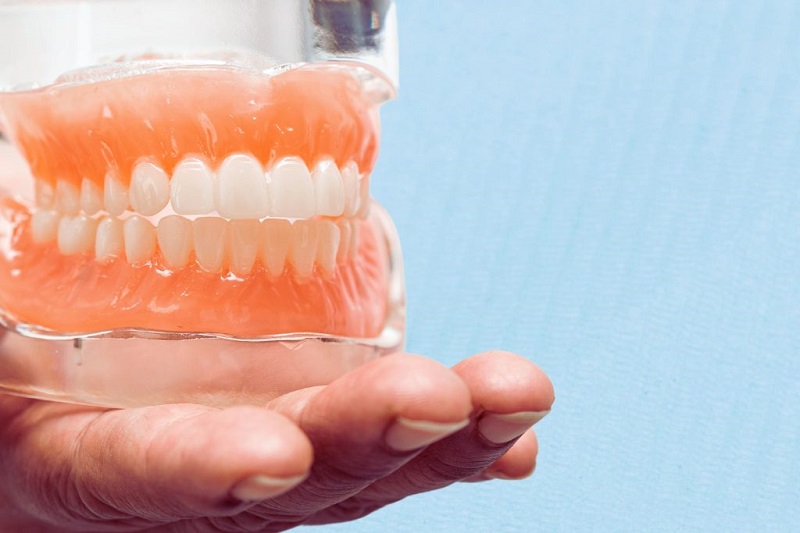Dentures have been a mainstay of restorative dentistry for centuries, providing a necessary solution for those suffering from tooth loss. However, traditional dentures, often relying on generalized measurements and fabrication techniques, can sometimes fall short in providing optimal comfort, stability, and function. Enter precision dentures—a revolutionary advancement that utilizes sophisticated techniques and personalized measurements to create a prosthetic that is not only highly aesthetic but also vastly superior in functionality and fit. This article explores the innovative world of precision dentures, highlighting how they are transforming the lives of patients and setting a new standard for tooth replacement.
The Limitations of Conventional Dentures
To appreciate the revolution brought about by precision dentures, one must first understand the inherent challenges of their conventional counterparts. Traditional dentures are typically made using standard impressions and articulated models, which, while functional, often don’t account for the unique, dynamic movements of the patient’s jaw and facial muscles. This can lead to a host of common complaints:
- Poor Stability: The lack of a precise fit often results in slippage, especially during speaking or eating, which can cause embarrassment and functional issues.
- Reduced Chewing Efficiency: Ill-fitting dentures can make it difficult to properly chew food, leading to dietary restrictions and potential digestive problems.
- Sore Spots and Discomfort: Uneven pressure distribution due to an inexact fit can cause painful pressure points and irritation of the gum tissue.
- Compromised Aesthetics: While modern conventional dentures look better than older models, they may still lack the natural appearance achieved by a customized precision process.
These limitations demonstrate the need for a more individualized approach—a need that precision dentures emphatically address.
What Makes Precision Dentures Revolutionary?
Precision dentures represent a paradigm shift from a generic, one-size-fits-most solution to a meticulously customized restoration. The core difference lies in the advanced diagnostic and fabrication protocols used, which focus on replicating the patient’s natural oral anatomy and muscle function.
Advanced Diagnostic Techniques
The journey to a precision denture begins with far more detailed and dynamic measurements than traditional methods. Key techniques include:
- Physiological Jaw Recording: Instead of relying on static impressions, precision techniques capture the jaw’s position and movement under muscle function. This is often achieved using specialized instruments like an arcon articulator and, in some cases, advanced technologies like the Kois Dento-Facial Analyzer, which ensures the prosthetic aligns perfectly with the patient’s facial mid-line and aesthetic planes.
- Gnathological Principles: The construction adheres to gnathology, the science of mandibular movement and the functional relationship of the teeth, muscles, and temporomandibular joints (TMJs). This ensures the bite is perfectly balanced, reducing strain on the TMJs and improving comfort.
- BPS (Biofunctional Prosthetic System) and Other Systems: Many precision denture providers, including specialized practices like https://albertadentures.com/service/precision-dentures, utilize highly systematic and validated fabrication systems. These systems provide a comprehensive, standardized approach to every step, from impression-taking to final processing, ensuring consistently high-quality results.
Personalized Fabrication and Materials
The customization extends into the choice of materials and the fabrication process itself:
- High-Quality Teeth: Precision dentures use premium, multi-layered denture teeth that mimic the light-reflecting and aesthetic qualities of natural teeth much better than standard acrylic teeth. They are also significantly more durable and wear-resistant.
- Personalized Gum Contours: The acrylic base is sculpted to accurately replicate the natural contours and color of the patient’s gum tissue, making the transition from natural tissue to prosthetic nearly undetectable.
- Injection Molding: Many precision dentures are processed using an injection molding technique under continuous pressure. This results in a denser, less porous acrylic base that resists staining, minimizes dimensional changes (shrinkage), and improves the long-term, snug fit of the denture.
The Benefits for Oral Health and Functionality
The meticulous care and advanced technology involved in creating precision dentures translate directly into substantial benefits for the patient.
Superior Stability and Retention
Because the impressions and measurements are taken when the jaw muscles are active and the denture-bearing tissues are correctly displaced, the final prosthetic fits like a glove. This greatly enhances suction and stability, dramatically reducing slippage and the need for messy adhesives. Patients can eat, speak, and laugh with newfound confidence.
Improved Chewing Efficiency and Diet
The balanced occlusion, or bite, achieved through precision techniques ensures that the upper and lower teeth meet accurately and evenly. This optimized functional relationship allows the patient to regain significant chewing power, often approaching that of natural teeth. This restoration of function permits a return to a healthy, unrestricted diet, which is critical for overall health and digestion.
Reduced Tissue Trauma and Increased Comfort
The precise fit distributes pressure evenly across the supporting ridge, eliminating the painful sore spots that plague conventional denture wearers. The stabilization of the denture also helps to minimize the friction that can cause chronic irritation, allowing the underlying gum tissue to remain healthier.
Enhanced Aesthetics and Self-Confidence
The attention to detail in tooth selection, arrangement, and gum color customization provides an extremely natural, age-appropriate, and aesthetically pleasing result. The dentist and denturist work together to ensure the smile line is flattering and harmonious with the patient’s facial features. This dramatic improvement in appearance is a major contributor to a boost in self-esteem and quality of life.
Preservation of Remaining Oral Structures
A balanced bite and proper fit are crucial for the long-term health of the jawbone. When a denture is poorly fitted, it can cause uneven stress that accelerates the resorption (shrinkage) of the alveolar ridge (the bone that supports the teeth). Precision dentures stabilize the bone and minimize undue pressure, helping to preserve the remaining oral structures for a longer period.
Conclusion: Investing in a Higher Standard of Care
Precision dentures are more than just an upgrade; they are an investment in long-term oral health, optimal function, and dramatically improved quality of life. They resolve the functional compromises inherent in traditional denture wear by integrating advanced diagnostics, gnathological principles, and superior fabrication materials.
For individuals seeking the highest level of comfort, stability, and aesthetic outcomes in their tooth replacement solution, the choice is clear. The precision approach, championed by specialists and practices that prioritize detailed customization, delivers a restorative solution that genuinely lives up to its name—providing a perfect fit for a healthier, more functional, and more confident future.

